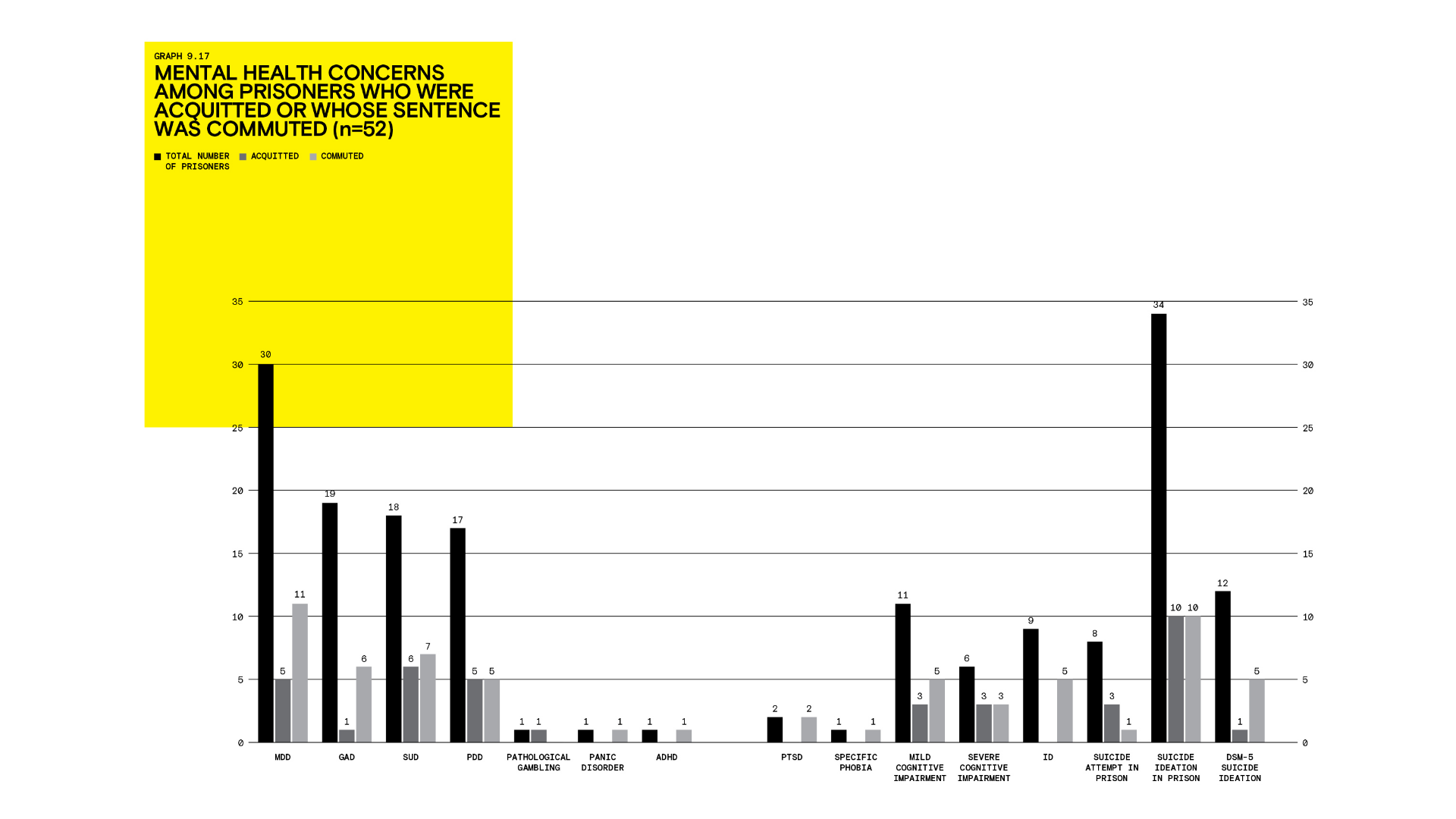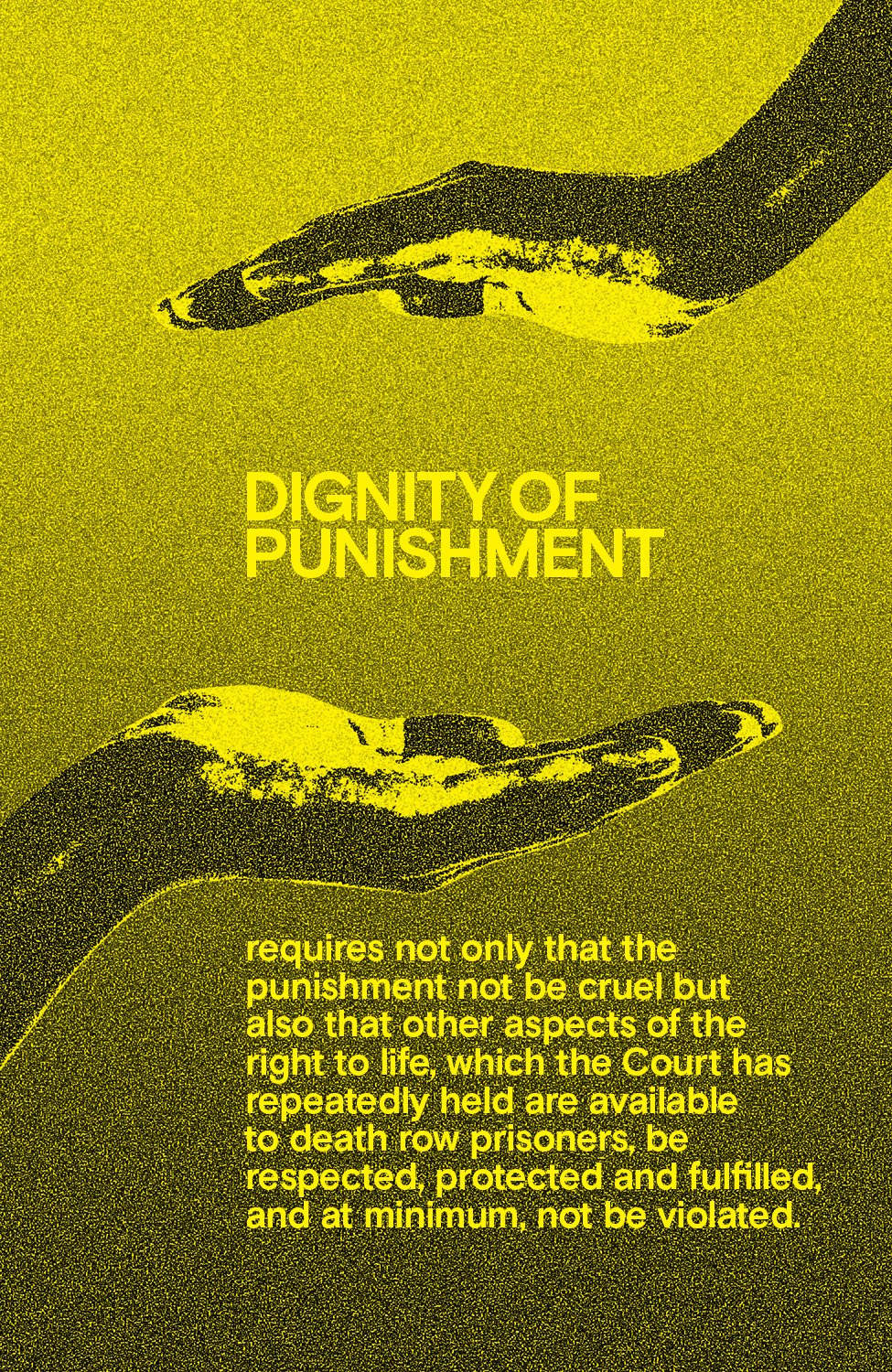India
Sentenced to Death
Sentenced to Death
A study on the mental health of prisoners on the death row
A study on the mental health of prisoners on the death row
They are neglected and abused, haunted by fears and rejected by society. Prisoners on the death row often do not fulfill the stereotype of the aggressive, empathy-less criminal. An Indian study examined the various life histories and social realities of 88 imprisoned offenders. The focus of the study was on life histories as well as to determine the prevalence of mental illness, mental retardation, and mental consequences of death row.

Adverse childhood experiences: 48 prisoners were abused as children, 64 neglected and 73 grew up in disturbed family environments. 46 had less than 10 years of education. 73 prisoners were exposed to three or more adverse childhood experiences. Such experiences are risk factors for violence and mental illness later in life.
Mental illnesses: 62.2% of death-row prisoners were diagnosed with at least one mental illness. Among the 88 prisoners, the main psychiatric illnesses found were major depressive disorder (30), generalized anxiety disorder (19), and substance use disorder (18). Six were screened for psychosis. 17 were cognitively impaired. 31.7% had a dual diagnosis, and 9.75% had three or more comorbid mental illnesses. 34 were found to be at risk of suicide, and eight had attempted suicide.
Intellectual disability: Nine prisoners were diagnosed with intellectual disability and over 75% were found to have deficits in intellectual functioning. While international law prohibits the imposition of the death sentence on persons with mental disabilities, in the case of these nine prisoners, their disability was not brought to the attention of the courts. Three of these prisoners had their clemency rejected by the President.
Mental agony and pains of death row: Social isolation, violence by prison authorities, discrimination due to the status of death-row prisoner, and lack of work were correlated with mental health illness. 94.1% of prisoners who were at risk of suicide also reported death-row distress (psychological distress and negative reactions experienced due to the death sentence and being on death row).
Pain as punishment: Of the 88 prisoners interviewed, 60% had either their death sentence commuted or were acquitted by the High Court or Supreme Court. 13 out of 19 prisoners were acquitted, and 18 out of 33 prisoners who had their sentence commuted were diagnosed with at least one mental illness. If we accept pain as punishment, 60% of the prisoners went through that pain needlessly.
Reducing criminals to their crimes is easy. Possible reasons why they committed crimes should neither justify nor excuse them. Nevertheless, the United Nations Convention against Torture (CAT), which India has signed but not yet ratified, requires that respect for humanity, individual life experiences, and mental and psychological limitations must be taken into account in the sentencing decision. Prisoners on death row should no longer be dehumanized, but seen as individuals and treated accordingly.
Justice and accountability


